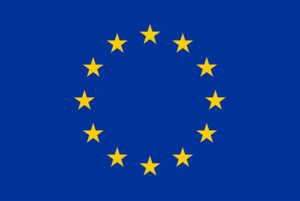Read about the COVID-X data anonymisation experience in the COVID-X Anonymisation Guide.
Is healthcare data just statistics or undiscovered treasure waiting to be found? According to the Web Tribunal, more data was generated in the last two years than in the entire human history before that. Yet, surprisingly, most of the collected data never gets used or analysed. Given the potential benefits data could bring in the healthcare sector, especially when tackling global pandemics, this seems like an unnecessary waste of opportunities. Web Tribunal also states that analysing patients’ data to improve their treatment is predicted to improve ER treatment by reducing the length of stay by 40% and improving its effectiveness by 50%. And financially speaking, the medical sector could save up to $300 billion yearly only by boosting data-driven research and treatment.
However, using clinical data represents a complex process of assuring that patients’ rights are protected through the data anonymisation process.In the words of Servicio Madrileño de Salud (SERMAS), one of the COVID-X clinical partners and ambassadors:
“Data anonymization defines the methodology and the set of good practices and techniques that reduce the risk of identifying individuals, the irreversibility of the anonymization process and the audit of the exploitation of anonymized data, monitoring who, when and what they are used for. In other words, it covers both the objective of anonymization and that of mitigating the risk of re-identification, the latter being a key aspect.”
However, technological advances can’t guarantee complete patient anonymity and many medical institutions are still reluctant to deal with the big risks of data breaches. On top of that, the healthcare sector is facing the daunting process of fulfilling the legal requirements of GDPR and other data protection regulations. The legal mandatories are, understandably, set up in a way to protect the patient from the risk of re-identification and data abuse. Still, major sanctions for non-compliance and loss of confidentiality are great risk factors for staggering the use of anonymised data and its ground-breaking benefits for all humankind.
The COVID-X project, as the platform envisioned to unlock the full capacity of data in fighting COVID-19, integrates data anonymisation in the core of its being. Feeding and training innovative Game Changers’ algorithms for coronavirus prognosis and diagnostics with the anonymised data collected through 3 clinical pilot sites and COVID-X Sandbox proved to be the biggest “Game Changer” itself.
Furthermore, anonymising large amounts of data for the purpose of the project produced fruitful results in more than one way. More specifically, project consortium partners helped facilitate the data anonymisation process by summarizing key requirements and steps in the COVID-X Anonymisation Guide. SERMAS and 8Bells, as the guide’s authors, managed to pour into one document their data collection and anonymisation experience for COVID-X purposes. This guide, designed as a tool to help the COVID-X consortium members and as the Anonymization Policy mandatory for COVID-X participants, covers best practices regarding technical, organisational and regulatory aspects of the data anonymisation procedure.
From k-anonymisation to data reduction, aspiring tech engineers in the healthcare sector can utilize the Guide for possible anonymisation techniques, all while following the step-by-step COVID-X Anonymization Protocol.
The Anonymisation Guide also highlights the key organisational aspects to reducing risks of uncontrolled access and unauthorized use of data. The document provides an overview of the COVID-X anonymisation team and careful segregation of their roles, as well as necessary personnel training and organisational security measures, all easily replicable in other institutions kick-starting the data anonymisation process.
Last but not least, COVID-X facilitates legal compliance of the whole procedure both through D1.1 Legal and Ethical Requirements, and the Anonymisation Guide itself by leading the readers through successful risk detection and the Privacy Impact Assessment (PIA).
Unfortunately, no guideline or procedure can protect its users from every data anonymisation risk. However, it is important to keep progressing in that aspect. COVID-X Clinical Ambassador SERMAS highlighted its importance of it by stating:
“Developing a joint anonymization guide is more than necessary. Data anonymization will allow operations to be carried out with less fear of database invasion and misuse by partners. This process will indirectly contribute to productivity and more results will follow.”
Read more at this link.






